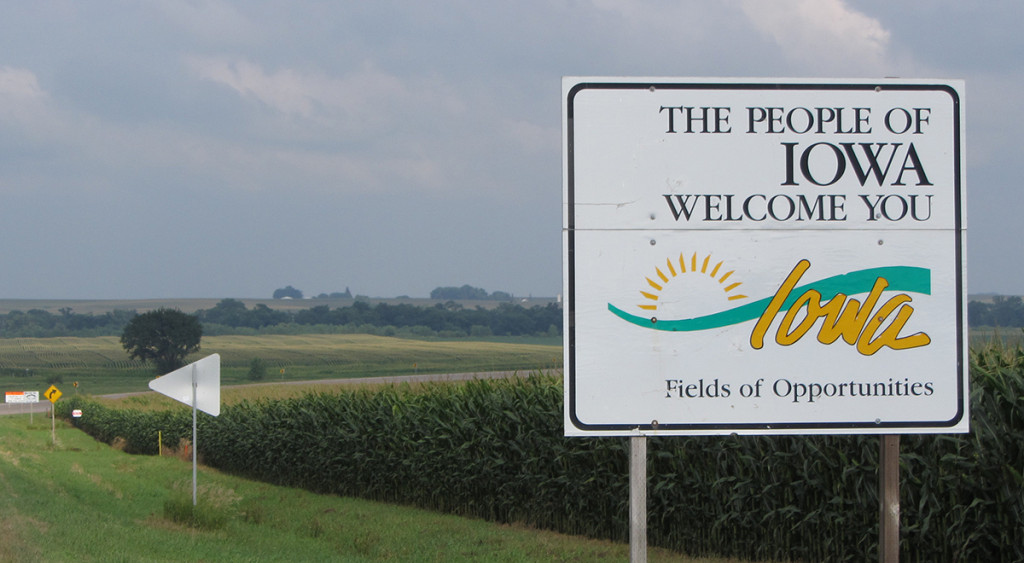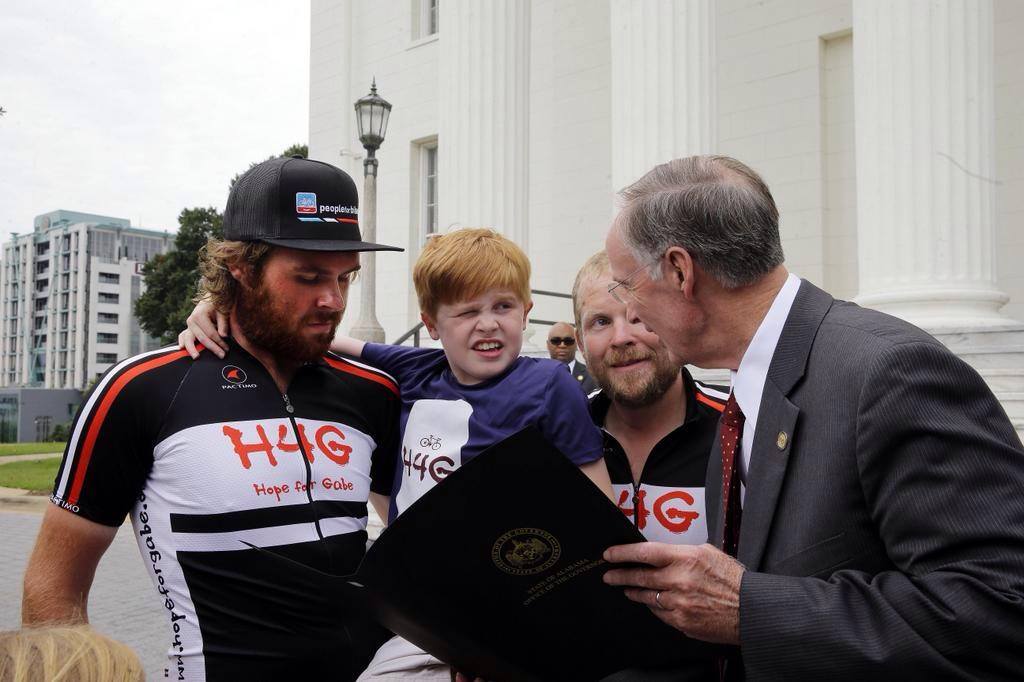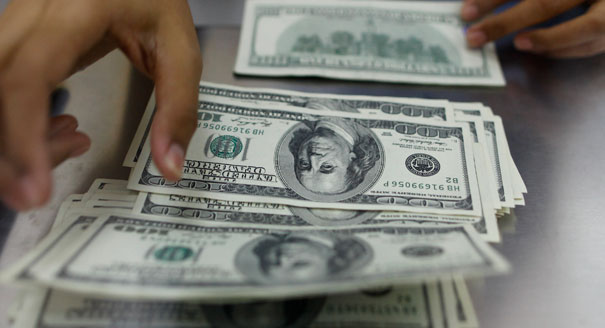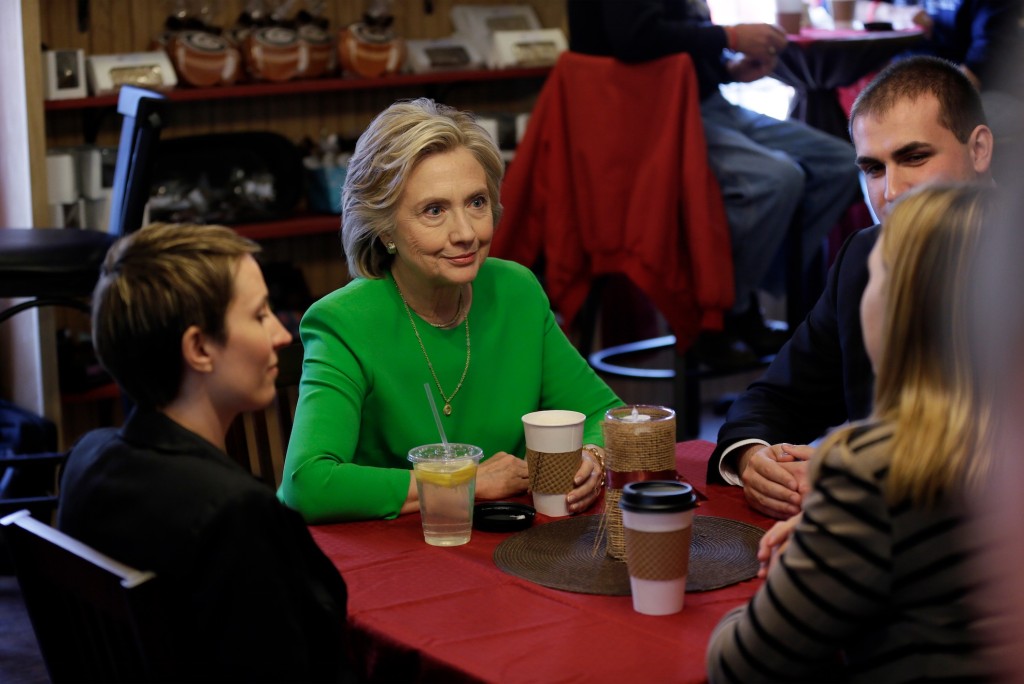Interest waning in straw poll, Iowa GOP to discuss its fate

As a rising number of 2016 GOP hopefuls distance themselves from Iowa’s Republican Straw Poll, state party officials are set to discuss the future of the event during a Friday conference call. Iowa GOP spokesman Charlie Szold confirmed Wednesday that a call had been set up, but he declined to provide further details. The call was first reported in the Des Moines Register. A carnival-like event that draws thousands of activists, the poll is scheduled for Aug. 8, but so far few 2016 prospects have committed to attend. State GOP officials have fought to keep the popular gathering alive, even cutting the fees to rent space to pitch tents at the event. Still, critics say the event has become a costly sideshow, and many candidates fear the humiliation of a poor showing. Former Arkansas Gov. Mike Huckabee, former Florida Gov. Jeb Bush and South Carolina Sen. Lindsey Graham are among those who plan to skip the event. Others have said they won’t spend money to participate. Bill Gustoff, a member of the State Central Committee that governs the party, said in a statement Wednesday that the conference call would include an update on planning for the poll. He said no vote had been scheduled, though the group “certainly may take action on the event.” “I love the Iowa Straw Poll, but I am not opposed to abandoning it if the interest is lacking among the potential candidates and attendees to ensure that it is a successful event,” Gustoff said. The fate of the poll was much discussed this past Saturday at a fundraiser hosted by Sen. Joni Ernst, which was held at the site in Boone where the poll is scheduled. Ernst said that candidates should join in, but she noted that opting out would not be disqualifying. Held since 1979, the Republican straw poll is considered an early but unreliable test of strength in presidential campaigns. In the six polls conducted since that first year, the winner has gone on to win the state caucuses three times. The eventual Republican nominee has won the poll only twice. In 2011, about 17,000 people turned out for the poll, far fewer than the roughly 120,000 who voted in the January 2012 caucuses. Candidate Michele Bachmann spent $2 million on the straw poll and won, but she left the race after a poor showing in the Iowa caucuses. The eventual GOP presidential nominee, Mitt Romney, did not participate in the straw poll. Graham on Saturday said the poll was “not a good return on investment.” Republished with permission of The Associated Press.
Angi Stalnaker: A few good things happened on the way to Sine Die

Pick up any newspaper or turn on any local television broadcast and you would think that the Alabama Legislature adjourned without doing anything productive. That is not exactly true. Several high-quality pieces of legislation became law this session courtesy of the Legislature and Gov. Robert Bentley‘s signature: The Right to Try Act Anyone who spent any time at the Alabama State House this session was sure to notice a very energetic red-headed little boy seated in the gallery or skipping through the hallways. That little boy is Gabe Griffin and he suffers from Duchene Muscular Dystrophy, which will leave him wheelchair bound in a few years if a treatment is not found. Thanks to a bill sponsored by Rep. April Weaver, Gabe and other Alabamians that suffer from terminal illnesses, will now have the opportunity to receive drugs that have not completed the burdensome FDA approval processes but have shown signs of being able to help. Closing loopholes in the Open Meetings Law Alabama’s open meetings law had gaps large enough to fly an Airbus through but Sen. Cam Ward helped pass a bill that restores one of the country’s oldest public meeting statutes to its original intent, and the taxpayer is better off because of his efforts. Shining a little more sunlight on government is always a good thing. Fostering Hope When foster children “age out” of the system after high school, they are often left with few resources and even fewer choices about their futures. Things will change for the state’s foster care graduates now as a result of Sen. Dick Brewbaker’s legislation. Foster kids will now be able to receive tuition, books and fees for their college education as long as they maintain the necessary academic requirements. Thie bill gives a future to hundreds of kids who deserve it. Angi Stalnaker is Alabama native and political consultant who has worked on numerous statewide, legislative and constitutional amendment races for conservative causes and candidates. She is the founder of Virtus Solutions, a full service government relations and communications firm.
Not willing to buy Gov. Robert Bentley’s “partially pregnant” argument on tax increases
Do you ever read a news story, then re-read it, then read it a third time and ask yourself if that really happened? It could just be me, however that’s the reaction I had to the AL.com report “Gov. Robert Bentley says lawmakers can’t be ‘partially pregnant’ after raising local taxes, fees.” The story quotes Bentley saying, “You can’t be partially pregnant.” “Either you’re going to have to vote for taxes or not vote for taxes. So, if you’ve already voted for taxes, you’ve already done it.” This is a valid point. I give him credit for that, to the extent members are saying, “No. No. No. I won’t support any tax increases.” There is an argument to be made that they have already done so. Still I’m not liking where the governor is going with this one. To me his “partially pregnant” defense of raising taxes is half-baked. Essentially, he’s saying, well, since legislators passed some local bills and allowed fees to be increased in a more efficient and streamlined manner, they need to concede that they’re OK with being a tax-and-spender and go ahead and increase all the taxes he has requested. Taxes that would affect nearly every Alabama business and family. Let me just assure lawmakers that if I were someone who ran on the promise of small government, fiscal responsibility and no tax increases, I wouldn’t take the bait on this one. I assure you not all increases are equal and the conservative voters who sent you to Montgomery are smart enough to tell the difference between local taxes and fee increases (which are taxes by another name) and the types of increases it would take to get the state’s budget in a somewhat workable place. The governor gave the partially pregnant image, so let me give you a different one. Imagine you’re a teen-age boy dating the sheriff’s precious daughter. You may safely get to first base (pass the increase you did during session) and daddy may be let the goodnight kiss slide, but try to round the bases (pass the whole enchilada of proposed increases) at your own peril. I urge the members to stick to their principles and not raise taxes in the Special Session. The wrath of angry voters on Election Day is right up there with an angry daddy and his shotgun.
Craig Ford, Darrio Melton holding House Democratic Caucus fundraiser

Alabama Today will be posting fundraising notices and invititations as we get them. If you get one, we encourage you to email it to pressreleases@ALToday.com. Wednesday night (tonight) the House Democratic Caucus will hold a fundraiser headlined by House Minority Leader Craig Ford and House Democrat Caucus Chairman Darrio Melton. Alabama Today has been told the sponsorship levels are: Bronze – $250 Silver – $500 Gold – $1,000 Platinum – $2,500 Ford is the chairman and treasurer of the caucus. According to its 2014 annual filing, the House Democratic Caucus Campaign Fund spent $56,751 this past year and ended the year with $565.66 on hand.
Hillary Clinton building vast network of campaign staff, volunteers

Scott Hogan wanted to know why his batch of potential volunteers was “ready for Hillary.” The campaign staffer didn’t get the answer he wanted, but it was enough to get the conversation started. “To tell you the truth, I like Bernie Sanders for just his honesty, but I don’t think he’s electable,” said Gina Casey, 59, sitting at a conference table at a Democratic Party office. “So, I’m trying to love Hillary and I need to know more.” A former gun control activist hired by Hillary Rodham Clinton‘s presidential campaign to organize the reliably Democratic state, Hogan made the pitch for his boss over Sanders, the independent Vermont senator mounting a longshot challenge for the Democratic nomination. “This campaign is about you,” Hogan told Casey and a handful of other Democrats gathered on a hot Tuesday night in this small southern Minnesota city. “It’s not about me. It’s not about Hillary. It’s about how best to move this country forward.” In a presidential race likely to include more than 20 candidates, none has an operation like Clinton. In just eight weeks since announcing her plans to run for president, Clinton has deployed an army of roughly 100 organizers such as Hogan nationwide and opened 15 offices in early-voting states – far more than any other candidate of either party in the 2016 contest. The overwhelming favorite for her party’s nomination, Clinton doesn’t necessarily need the volunteers now. But worried she will lack the power of a competitive primary to energize the core group of supporters she will need for the general election, Clinton’s team has set off on an early hiring spree that’s all but unprecedented. “You can’t get to a point where the polls are tight and say, `Oh, wow, we need to do some organizing,’” said Marlon Marshall, Clinton’s director of state campaigns and political engagement. “These organizing relationships will create a sense of urgency to let people know why we have to do this work now.” In Iowa, Clinton now has at least 27 paid organizers – three times as many as any of the dozen or so Republicans in the race. Her campaign has hired at least one staff member in every state, the District of Columbia and the U.S. territories. She has two regional directors in California and has even put one person on the payroll in Wyoming, a state that has not voted for a Democratic nominee in more than 50 years. The effort isn’t cheap: Senior campaign aides have set a goal of raising $100 million to pay for Clinton’s primary campaign. While Clinton has so far limited her campaign appearances to the first four states to vote and mostly private fundraisers, her campaign has organized 320 house parties – attracting almost 11,000 people in the 46 other states and the District of Columbia. This weekend, the day after Clinton gives the first major speech of her campaign, her appearance at an event in Iowa will be streamed to a party in every congressional district nationwide. “At this point, it’s more about finding people and getting them involved then convincing them to back Clinton,” said Hogan, as the group of students, retirees, and local activists began to filter into the office Tuesday night. The meeting was the fourth the Indiana native had organized in the state, including one in Minneapolis that attracted 200 participants. “There’s benefits to a place like Minnesota,” he said. “It’s got a ton of Democratic energy and people are really engaged.” Clinton’s campaign staff takes great pains to keep a focus on the primary campaign, insisting they take nothing for granted despite a lead in early polls over Sanders and a few others that often approaches 50 percentage points. Should the Democratic race become competitive, Minnesota – voting on Super Tuesday in the first set of primaries after the first four states – could be decisive. But if not, and Minnesota appears likely to vote as it has since 1972 for the Democratic nominee, the supporters Hogan is organizing now will become a valuable resource to raise funds, make calls and travel to neighboring battleground states such as Iowa and Wisconsin. The staff working now in deep blue states such as Minnesota will be redeployed to battleground states at the end of June, with the goal of having built an engaged volunteer networks to organize small dollar fundraisers and make sure Clinton is represented at local events, like parades and festivals, into the fall. Clinton aides said the early investment will pay dividends in the final weeks of the campaign. Data analyzed by President Barack Obama‘s campaign showed a direct correlation between supporter enthusiasm in the last six weeks before the election and when local operations began in their area, according to former staffers. “The earlier you start, the larger your volunteer structure will be the last two weeks or last month of the campaign, which is ultimately when that investment pays off,” said Mitch Stewart, who oversaw battleground states for Obama’s campaigns and advised the pro-Clinton super PAC Ready for Hillary. In Mankato, the gathering included brainstorming on ways Clinton could spread her message. At one table, a group of women had a suggestion for Hogan: Farmfest. Before Tuesday, they hadn’t considered the idea they should put together a booth for Clinton at the three-day agricultural trade show in August, a must-attend event for political candidates in this part of the state. “Next year will be the more important time to be out there,” said Lori Sellner, a 46-year-old from Sleepy Eye, Minnesota. “This is just earlier than we’ve seen before.” Republished with permission of The Associated Press.


